Seatopia plants one kelp plant per order - but why?
Kelp plays an integral role in our oceans as food, habitat, oxygen creators, nitrogen sequesters, and aides in lessening ocean acidification. Kelp is a natural filter that absorbs nutrients and pollutants from the water, such as nitrogen and phosphorus, which can cause harmful algal blooms and oxygen depletion in aquatic ecosystems. By cultivating kelp in polluted areas, the excess nutrients can be absorbed by the kelp, improving water quality and promoting the growth of other marine life. Additionally, kelp can also absorb carbon dioxide, making it an effective tool for combating climate change. Overall, kelp bio-remediation can help to restore balance to marine ecosystems and mitigate the harmful effects of pollution.
Kelp also plays a crucial role in the symbiotic relationships of integrated multi-trophic aquaculture (permaculture) by serving as a nutrient biofilter and providing habitat and food for other species. By incorporating kelp into IMTA systems, aquaculture producers can create more sustainable and environmentally-friendly systems that support the health of marine ecosystems.
Keep an eye out for future blog posts diving deeper into each of these topics!
Support aquaculture projects through Seatopia

Seatopia associates with a number of organizations and movements that increase awareness and research about kelp. See below for a few of our favorites:
Atlantic Sea Farms
Climate change is already making landfall on coastal communities in the US, and our future depends on finding new ways for fishing families to work on the water while improving the health of our oceans. Atlantic Sea Farms, led by CEO Bri Warner farm kelp with the goal of diversifying how our coastal waters are used and providing a domestic, fresh, healthy alternative to imported seaweed products. Bri Warner declares that “It became obvious that aquaculture was one of the key answers to the question of building a resilient future. Our partner farms are making the ocean healthier and adapting to climate change, not because of government subsidies or carbon credits, but because it's the right thing to do for them, for the ocean they have spent generations protecting, and for their children.”
Seaforestation
https://www.seaforestation.com/ https://www.ocean.org/climate-change/seaforestation/
Seaforestation is working to expand seaweed farming (which requires no land, fresh water, fertilizer, or pesticides) to address global food insecurity. Cultivated at scale, seaweed can grow up to 60 times faster than land-based plants. Well-designed seaweed farms can protect the seabed from coastal erosion and commercial fishing, while improving water quality, creating marine sanctuaries for sea life, and increasing biodiversity.
“By growing and restoring kelp forests at scale, we can remove CO2 from the atmosphere, create marine habitat, and combat ocean acidification…all while creating economic opportunities for Indigenous and coastal communities” - Carlos Drews, EVP, Conservation with Ocean Wise
To learn more about kelp, check out https://www.seaforestation.com/seaweed-education
USC Nuzhdin Research Laboratory at AltaSea
Dr. Sergey Nuzhdin runs the USC Nuzhdin Research Laboratory at AltaSea, a 6,000 square foot sustainable seaweed aquaculture lab pursuing ground breaking research on regenerative aquaculture.
Nuzhdin’s lab aims to advance the sustainable use of ocean resources, and has partnered with Holdfast, an aquaculture-focused startup, to co-develop the AltaSea aquaculture site. The lab focuses on regenerative aquaculture, the breeding, rearing and harvesting of macro algae and shellfish. They also explore the application of new technologies, including biofuels made from kelp that could reduce the need for fossil fuels. Nuzhdin’s lab conducts field research at the AltaSea site to advance the commercial production of seaweed and to develop varieties that are particularly well-suited for producing biofuels and bio chemicals, as well as alternative livestock feeds from the ocean. This work has the potential to contribute to the reduction of global warming, to produce biofuels from the ocean, to restore keep populations and to provide a natural solution for the security of the California shoreline.
Blue Hill at Stone Barns Center
https://stonebarnscenter.org/residency/
Seatopia Director Clark Kissiah participated in the Chef In Residence program at Blue Hill and Stone Barns Center, a program designed to help chefs participate in innovation and interdisciplinary collaboration to build a food culture rooted in ecological farming, eating, and community.
On the R&D projects ongoing at Blue Hill Clark said “we studied alternative uses of kelp in food innovation. Different varieties of kelp were used as ice cream stabilizers, as well as for the curing of meat, fish, egg yolks, and other proteins. Furthering this collaboration between food, science, and aquaculture is important work in food and ocean sustainability.”
So what’s next? And why are we so excited about kelp?
We’ll soon be diving into more kelp topics, like micro- vs. macroalgae and how it can be used to feed fish, the biology behind kelp, more research, and how our brand interacts with kelp and kelp companies. Follow along to see us announce a Seatopia seaweed/kelp and microalgae product, as well as fostering demand for more products by adding pickled kelp and seaweed salad to our brand.
Learn more about Seatopia's proactive ocean regeneration initiatives.
When you subscribe to Seatopia you are supporting artisan aquaculture and helping restore our oceans:



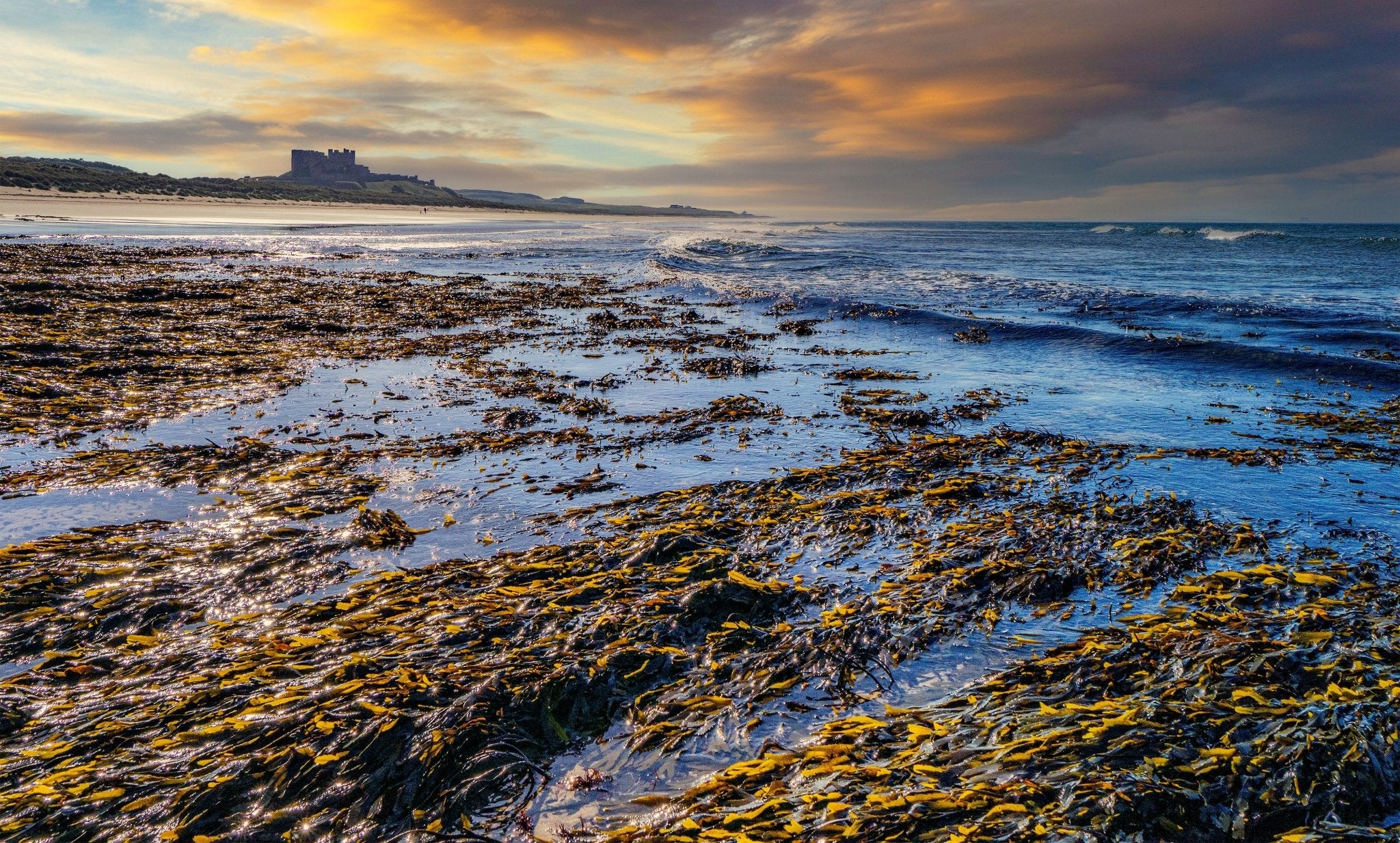
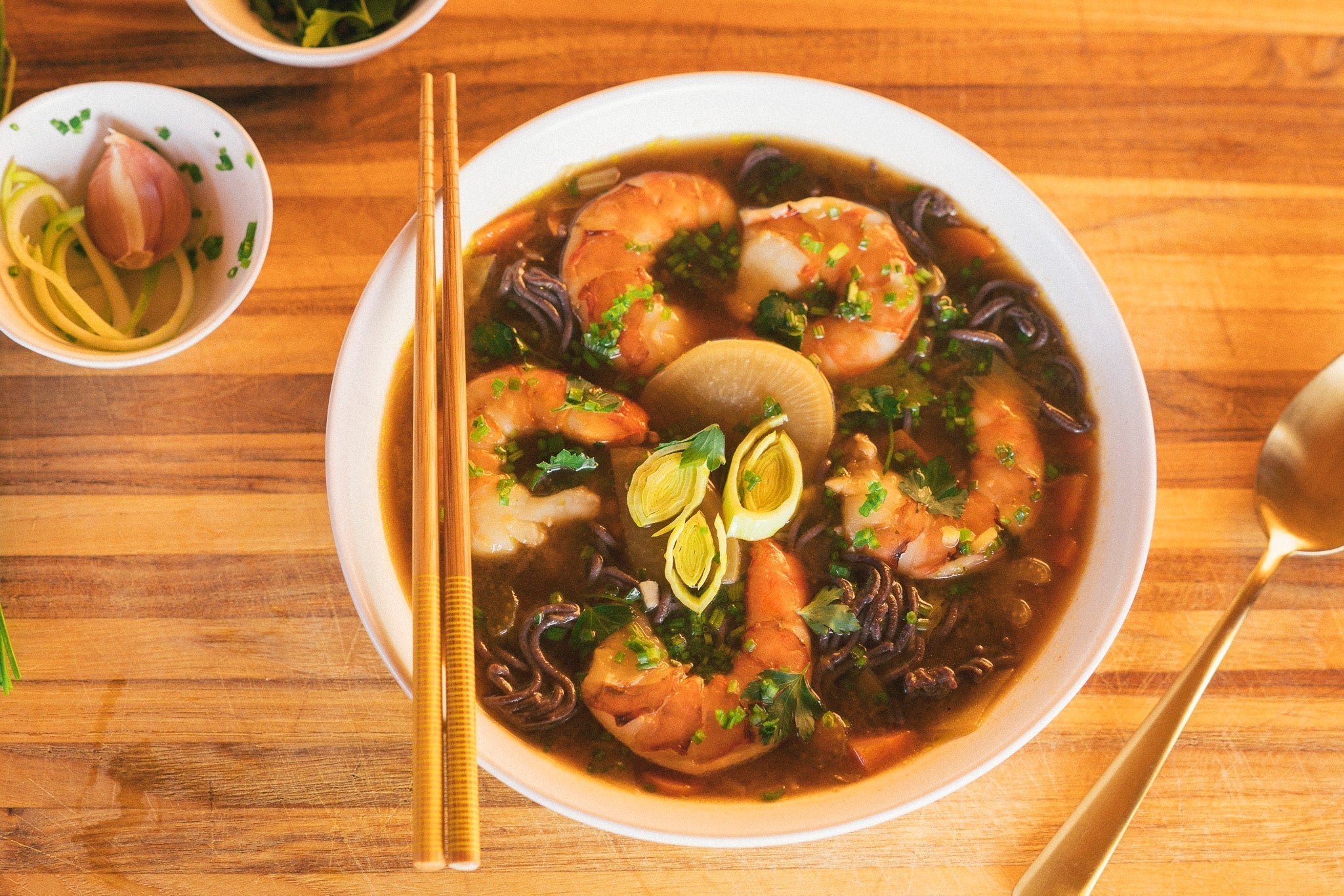


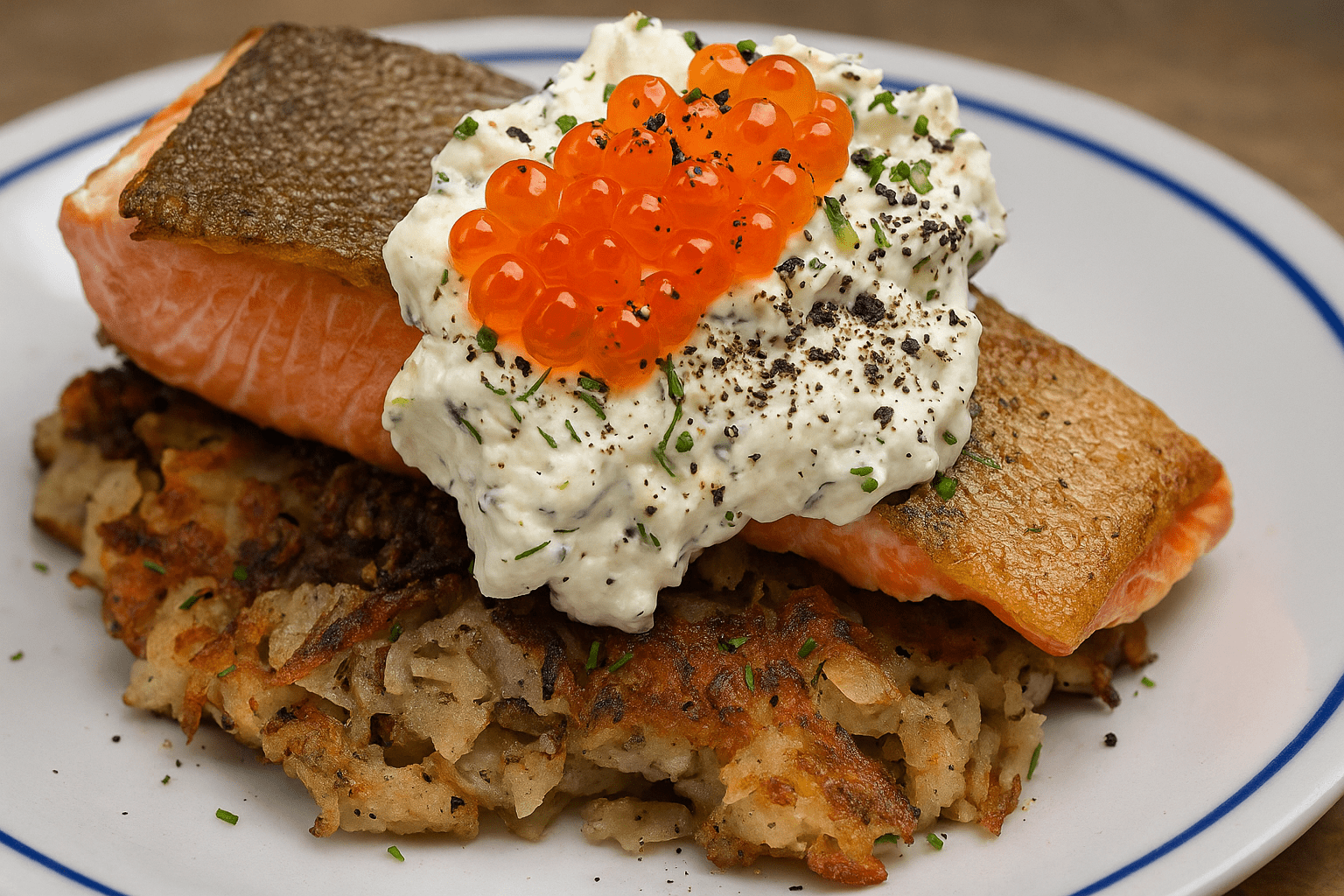
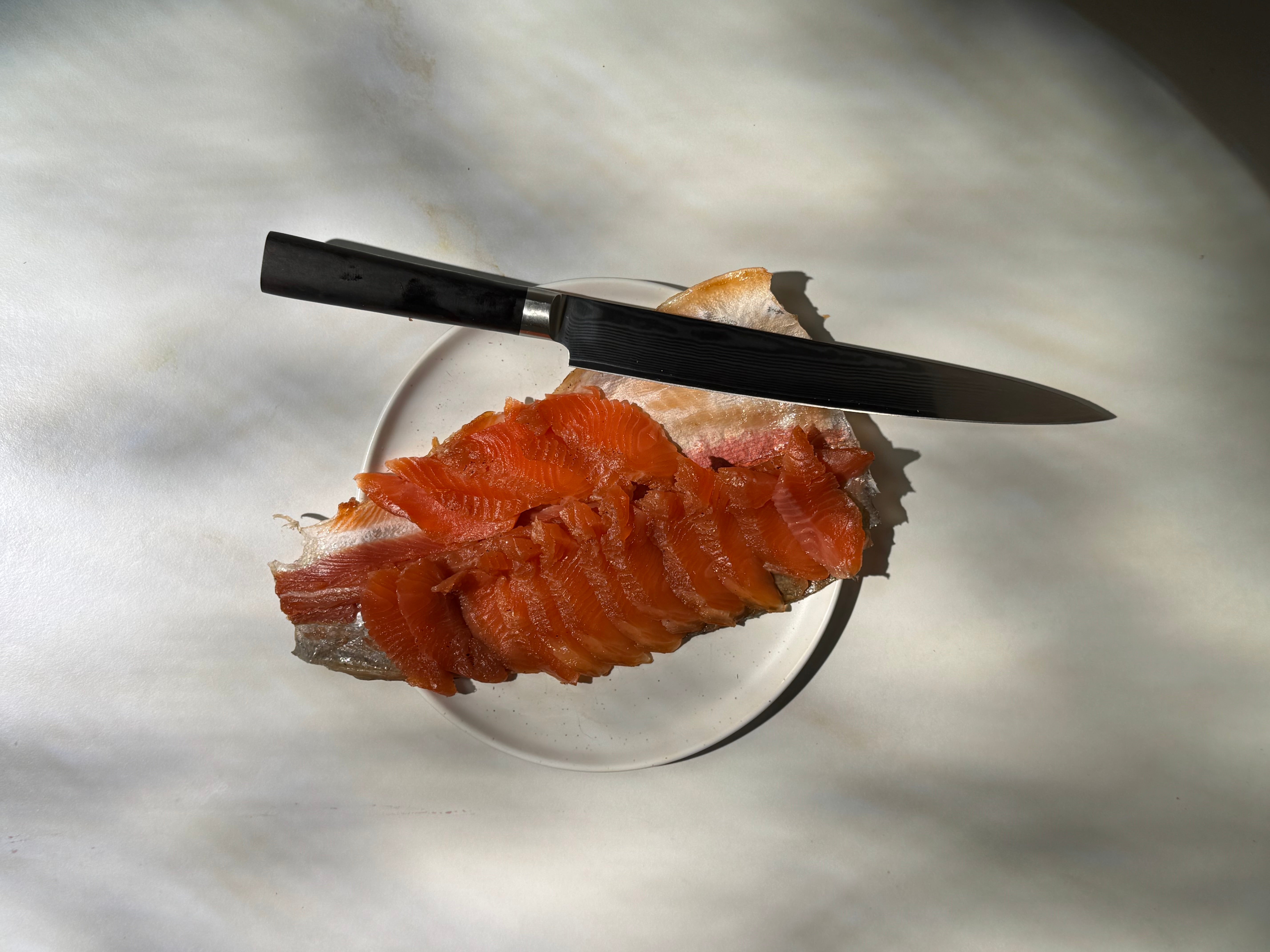


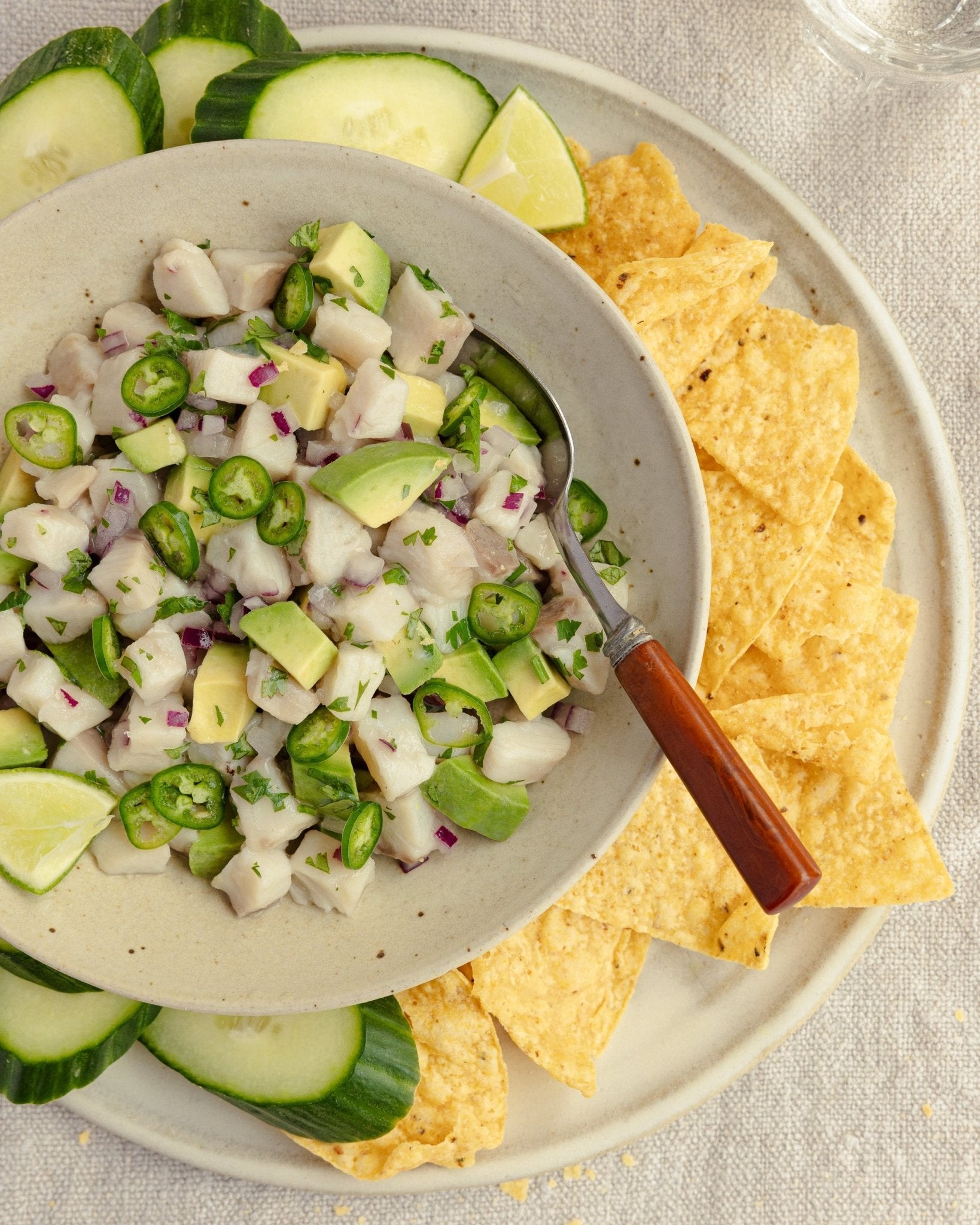
Share:
Branzino and the Blue Zones: Eating for Longevity and Sustainability
What is Kelp?